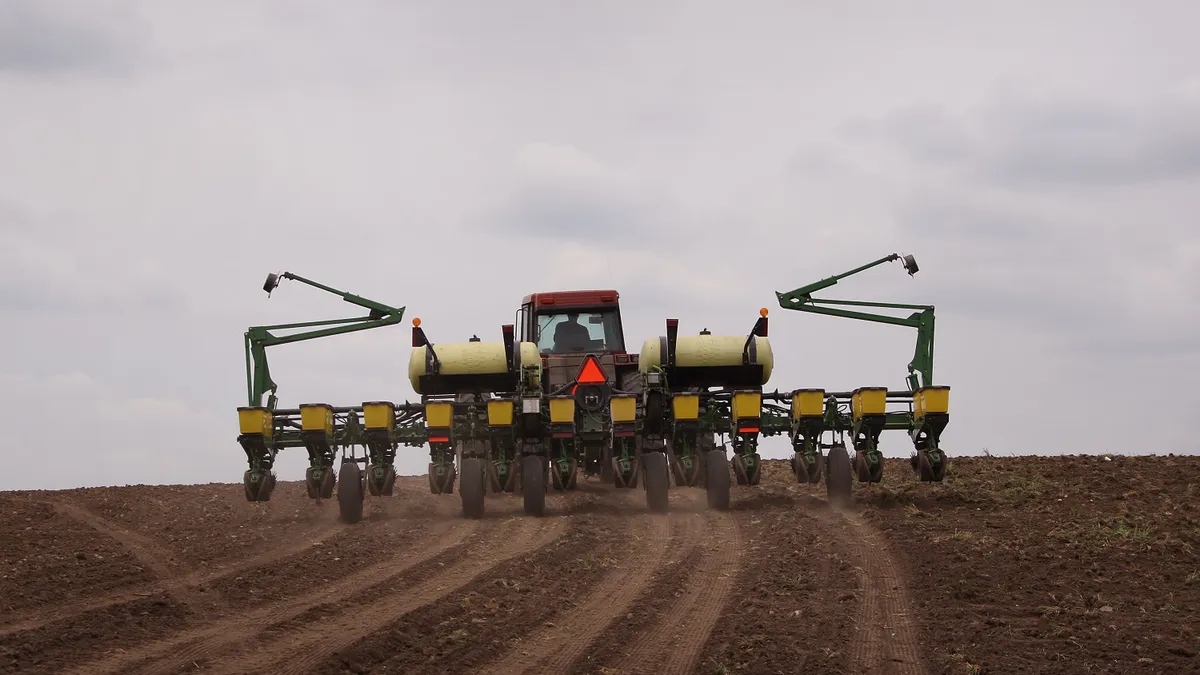Dive Brief:
- Seed and pesticide manufacturer Corteva said sales of its innovative corn and soybean seeds offset continued declines in the crop protection market.
- Second quarter net sales increased 1% to $6.11 billion over last year, largely driven by the seeds business. Seed net sales were $4.33 billion in the three months that ended June 30.
- The company, which spun off from chemical giant DowDuPont in 2018, has raised seed prices and ramped up a strategy to out-license its seed and genetics technologies to other companies. Corteva grew royalty income by 40% in the first half of the year.
Dive Insight:
Farmers continue to show strong demand for seeds even as they continue to hold back on purchases of crop inputs like fertilizers and pesticides.
Part of the reason for the demand discrepancy is the value proposition of seed versus herbicide or another product: Farmers tend to view seeds as a safer investment compared to crop protection products.
"One thing about seed is it is a very emotional decision," Tim Glenn, executive price president of the seed business unit, said on an earnings call last week. "And for that farmer, it’s not just confidence that the genetics are going to perform and deliver a certain level of yield that’s consistent with their expectations, but it’s also the ability to be able to handle adversity."
Corteva's Enlist E3 soybean, which is tolerant to herbicides such as glyphosate and glufosinate, are on 65% of U.S. soybean acres in 2024. Earlier this year, the company also announced a new Pioneer brand Z-series soybean that offers "significant yield advantage and better disease resistance."
The yield and disease resistance advantages of genetically modified seeds make it more of a value-based purchase than crop protection products, Corteva executives said. Corteva's crop protection unit saw volume and sales declines during the second quarter and first half of the year.
When finances are tight, farmers are choosing to invest in what is most likely to help them turn a profit. In most cases, that's seeds.
"Especially when margins are compressed at the farm operation level, that last bushel is maybe all the profit that they make," Glenn said.











